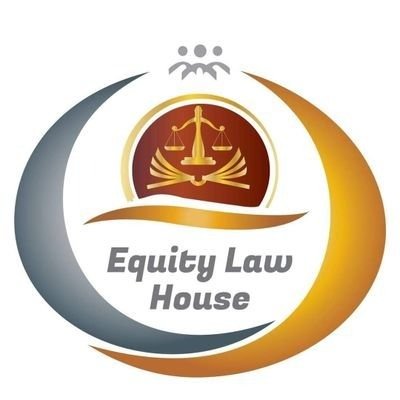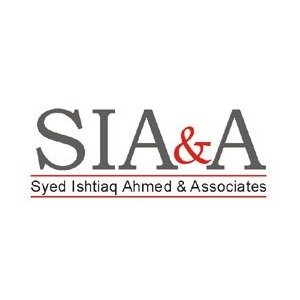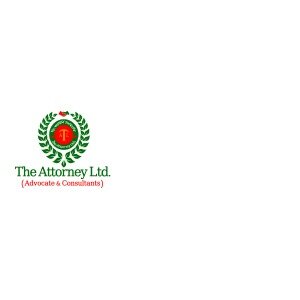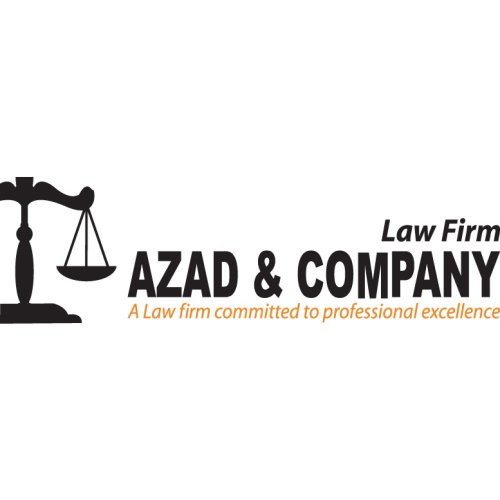Best Corporate & Commercial Lawyers in Dhaka
Share your needs with us, get contacted by law firms.
Free. Takes 2 min.
List of the best lawyers in Dhaka, Bangladesh
About Corporate & Commercial Law in Dhaka, Bangladesh
Corporate and commercial law in Dhaka, Bangladesh, covers the legal framework that governs business operations, formation, management, and transactions in one of South Asia’s fastest-growing economies. This area of law regulates how companies are established, how businesses merge, how they are dissolved, and how commercial agreements are enforced. Dhaka, as the commercial hub of Bangladesh, has a diverse array of local and multinational corporations, SMEs, and startups operating in different sectors. Legal structures and compliance are crucial for businesses here to thrive within the regulatory guidelines set by the government and various regulatory bodies.
Why You May Need a Lawyer
There are several scenarios in which individuals and businesses may seek legal assistance in the corporate and commercial sector in Dhaka. Some common situations include:
- Starting a new business or company incorporation
- Drafting and reviewing partnership agreements or shareholder agreements
- Mergers, acquisitions, and joint ventures
- Compliance with regulatory requirements and licensing
- Resolving shareholder disputes or conflicts among executives
- Contract disputes and enforcement of commercial agreements
- Intellectual property protection, like trademarks or copyrights
- Dissolution, liquidation, or restructuring of a business
- Employment law issues involving contracts, terminations, or workplace policies
- Foreign investment, remittance, and cross-border transactions
Lawyers serve as essential guides to help navigate these complexities, reduce potential risks, and ensure compliance with the local laws.
Local Laws Overview
Key aspects of local corporate and commercial laws in Dhaka are founded on several major legal acts and regulatory bodies, including:
- Companies Act, 1994 - Governs all matters related to company formation, management, and dissolution.
- Bangladesh Securities and Exchange Commission (BSEC) - Regulates the capital markets, including listed company compliance and investor protection.
- Foreign Exchange Regulation Act, 1947 - Regulates foreign investments, currency dealings, and repatriation of profits.
- Contract Act, 1872 - Sets the rules on how business contracts are formed and managed.
- Labour Act, 2006 - Outlines the legal framework for employment relationships and workplace matters.
- Bankruptcy and insolvency proceedings are governed under specific provisions intended to resolve financial distress for businesses.
Additionally, sector-specific laws may apply, such as the Telecommunications Act, Banking Companies Act, and intellectual property laws, depending on your business type.
Frequently Asked Questions
What is required to start a company in Dhaka, Bangladesh?
To start a company, you need to choose a business structure, register the business name, prepare the memorandum and articles of association, and file the necessary documents with the Registrar of Joint Stock Companies and Firms. Various fees and compliance requirements must also be fulfilled.
What are the types of companies I can establish?
You can set up private limited companies, public limited companies, partnership firms, or sole proprietorships. Each type has its own capital, shareholder, and compliance requirements.
How do I resolve disputes with shareholders?
Disputes are typically managed through negotiation, mediation, or arbitration, as set out in the company’s articles. Litigation in the courts of Bangladesh is also an option if other methods fail.
What are the main compliance requirements for companies?
Companies must hold annual general meetings, file annual returns, maintain statutory registers, comply with tax obligations, and adhere to sector-specific licenses or approvals.
Can foreigners own a business in Dhaka?
Yes, foreigners are generally permitted to own businesses, subject to certain sectoral guidelines, foreign investment restrictions, and regulatory approvals.
What happens if a company is unable to pay its debts?
The company may undergo insolvency proceedings which could involve restructuring, management takeover, or liquidation, following procedures outlined in local bankruptcy laws.
Are contracts enforceable in Bangladesh?
Yes, contracts that meet the requirements of the Contract Act, 1872, and do not violate public policy or law, are legally enforceable in Bangladeshi courts.
How are mergers and acquisitions handled?
Mergers and acquisitions are regulated by the Companies Act and the BSEC, involving due diligence, contract negotiation, necessary disclosures, and obtaining approvals from the authorities.
What taxes must companies pay in Bangladesh?
Corporate taxes, value added tax (VAT), customs duties, and other sector-specific taxes may apply. The National Board of Revenue administers most tax regulations.
What is the role of the Registrar of Joint Stock Companies and Firms (RJSC)?
The RJSC is the government body responsible for registering companies, partnerships, and verifying compliance with company law in Bangladesh.
Additional Resources
For further guidance and official information, you may consider reaching out to these sources:
- Registrar of Joint Stock Companies and Firms (RJSC) - Business registration and compliance
- Bangladesh Securities and Exchange Commission (BSEC) - Capital market regulation
- Bangladesh Investment Development Authority (BIDA) - Foreign investment and business setup
- National Board of Revenue (NBR) - Taxation matters
- Bangladesh Association of Publicly Listed Companies - Industry support and advocacy
- Bar Council of Bangladesh - Professional regulatory authority for lawyers
Next Steps
If you require legal assistance with corporate and commercial matters in Dhaka, start by identifying your specific needs, whether company formation, contract drafting, compliance, dispute resolution, or investment advice. Collect all relevant documents pertaining to your business and consider scheduling a meeting with a reputable law firm or practicing advocate with expertise in this field. Always ensure that your chosen advisor is registered with the Bar Council of Bangladesh and has experience in corporate law matters. Consulting early can save time, reduce risk, and help you make informed decisions for your business success.
Lawzana helps you find the best lawyers and law firms in Dhaka through a curated and pre-screened list of qualified legal professionals. Our platform offers rankings and detailed profiles of attorneys and law firms, allowing you to compare based on practice areas, including Corporate & Commercial, experience, and client feedback.
Each profile includes a description of the firm's areas of practice, client reviews, team members and partners, year of establishment, spoken languages, office locations, contact information, social media presence, and any published articles or resources. Most firms on our platform speak English and are experienced in both local and international legal matters.
Get a quote from top-rated law firms in Dhaka, Bangladesh — quickly, securely, and without unnecessary hassle.
Disclaimer:
The information provided on this page is for general informational purposes only and does not constitute legal advice. While we strive to ensure the accuracy and relevance of the content, legal information may change over time, and interpretations of the law can vary. You should always consult with a qualified legal professional for advice specific to your situation.
We disclaim all liability for actions taken or not taken based on the content of this page. If you believe any information is incorrect or outdated, please contact us, and we will review and update it where appropriate.
Browse corporate & commercial law firms by service in Dhaka, Bangladesh
Dhaka, Bangladesh Attorneys in related practice areas.

















